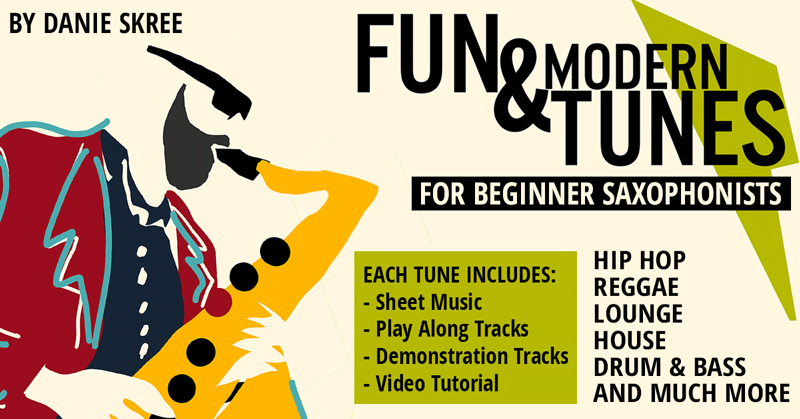6 Powerful Tips For Writing a Musician Bio That Pops
 Even if you’re a master at improvised solos and composing melodies, chord changes, and lyrics, there’s no doubt it’s difficult to write about yourself as an individual and a musician!
Even if you’re a master at improvised solos and composing melodies, chord changes, and lyrics, there’s no doubt it’s difficult to write about yourself as an individual and a musician!
Yet when it comes to putting yourself out there, this is a piece of writing you’ll need to get involved in, especially when it comes to your social media bios and biography pages on your website. So, how do you write a bio that grabs a potential fan’s attention?
Ideally, an excellent musician bio will give many of your website visitors their first impression of you, which is why you need to make it a good one. A good bio will help convert your visitors into followers, as well as providing bloggers and journalists with an understanding of who you are.
Let’s cut to the chase and explore what you should be thinking about.
1. Build Up an Image of Yourself
Getting started on your artist bio is the hardest part of the process, which is why you’re finding it so challenging to write! The best remedy to this is not to dive straight into writing the bio, but instead work on creating an image of yourself.
To begin, jot down some ideas on a sheet of paper. In addition to including your name and where you’re from (of course), add details about yourself or your band you think people will find interesting. Find creative ways to describe your music as objectively as possible, and then list your influences.
This process will assist you in drafting a sentence or two to serve as an introduction. First, think of words to describe your music style, and overall creative approach, and then use a thesaurus to find other words you may not have thought of.
However, you’ll want to consider how you’d introduce yourself to someone who has never met you or heard your music before, so keep in mind the tone of voice you’re writing in. Depending on your musical style and personality, you may wish to infuse some humor into your bio or write more formally.
2. Make it “Scannable”
In your bio, include some relevant background information, such as your musical history, but keep it short. You want to hold your visitors’ attention, not lose it with long paragraphs of material. Avoid using big, chunky paragraphs, as you’ll put readers off immediately.
Your bio should be written in the third person. This will make it easier to scan and understand, as well as aid in the search engine optimization of your website.
Finally, to add visual interest your bio, don’t forget to upload a photo of yourself!
3. Don’t Undermine Yourself with Poor Spelling and Grammar
To present yourself professionally, you’ll need to make sure that you keep grammar and spelling in mind. While you might not think about this during the rough draft, you should still remember to keep your bio polished with proper grammar and spelling.
Like a resume, having a musician bio that’s free of spelling errors and typos can save you from the humiliation of people (such as promoters and record labels) not taking you seriously.
In addition, make sure that you use the appropriate capitalization. It is quite common to see music bios where improper nouns are capitalized, so you see spellings such as “Jazz” or “Saxophone”, or other words that do not refer to a specific person, place, or thing.
And then, there is the very common confusion about italics vs. quotes. The two main rules of thumb in music titles are:
- Song titles go in quotes (ie: “Blue in Green”)
- Album titles go in italics (ie: Kind of Blue)
4. Describe Your Most Current Musical Projects
Says Tim Danny, a music expert at Boomessays and OXEssays, “although most of your followers are already familiar with your music, a blogger or journalist may be unfamiliar with it, which is why you need to include a brief description of your music. Remember, this bio will mainly be for people who don’t know who you are, so you need to entice them in”.
It may be difficult to identify your music in a genre but try to use a few terms that people would recognize. This will encourage someone reading your bio to listen to your music as well, which is ideally the point of the bio in the first place!
Then, go on to talk about what you’re doing with your music right now. Have you recently entered the studio? Have you released a single? Have you ever collaborated on a song with another artist?
Basically, make a list of the most current and significant things you’ve done with your music and include them in your artist bio.
5. Include Highlights and Accomplishments in Your Career
Consider all that you’ve accomplished with your songs. You may ask yourself questions like, “have I ever opened for a famous band or performed at a large festival?” “Have I ever had a hit on the radio or on a streaming music platform?” “Have I been nominated for a prestigious award?”
“Just make a list of all your accomplishments, then choose two or three of the most noteworthy to mention in your bio. You’ll probably want to include something recent to demonstrate that you are a working musician to ensure your bio feels up to date and relevant,” explains Amy Farrow, a writer at Assignment Help and Paperfellows.
In this section of your bio, it’s important you don’t exaggerate or embellish. Instead, be factual and present them in a positive light.
6. Keep Your Bio Current
Your musician bio is probably going to appear on your website in a few of locations, as well as your social media pages and any websites where you’re selling tickets to gigs and concerts. This is why it’s so important to keep your bio updated. Don’t just write it once and leave it forever. Keep coming back to it and refresh the text.
If you have any new projects, releases, collaborations, or planned tours, make sure to update your bio in these spots.
As your career progresses, make sure to add new accomplishments to your resume.
Conclusion
Writing a musician bio can be your ticket to getting noticed by the right people. By following these 6 tips, you’ve maximized the impact of an important tool for allowing your music career take flight!





